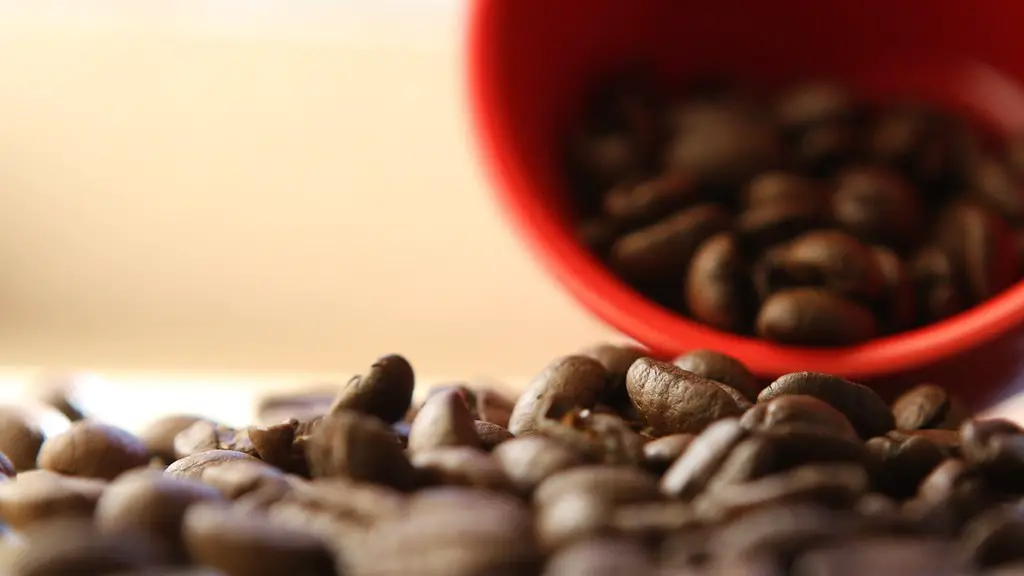Negative Side-Effects
Coffee has been linked to a variety of health problems. Caffeine is a stimulant that can cause restlessness, increase heart rate, raise blood pressure and make you more prone to anxiety. Due to this, the World Health Organization classifies coffee as possibly cancer-causing due to its potential to damage DNA. Additionally, drinking too much coffee can be dehydrating, since caffeine is a diuretic. This can lead to headaches, fatigue and difficulty concentrating.
Several studies have also established that high caffeine intake can increase a person’s risk of developing diabetes and osteoporosis. Furthermore, pregnant women are advised to avoid consuming excessive amounts of caffeine. The developing baby is likely to be affected by the diuresis and caffeine can peak in the child’s system before it peaks in the mother’s. Chronic excessive caffeine use can lead to digestive problems, including an increased risk of developing an ulcer.
Addictive Nature
Coffee is often used as a means to make it through the day due to its energizing effects, yet this can be to the detriment of our overall productivity. Regular coffee drinkers can quickly become dependant on the substance and they need more and more coffee to feel energized throughout the day. Medical professionals also advise against over-dependency on stimulants like caffeine, as it can disrupt normal brain chemistry functioning.
Another point to consider is that coffee can lead to poor sleeping patterns. The stimulating effects of caffeine can remain in a person’s body for five to seven hours. Caffeine interferes with the body’s natural circadian rhythm, which can result in poor sleeping habits, fatigue and a decrease in both mental and physical performance. Furthermore, studies have linked coffee consumption to an increased risk of depression.
Unfavorable Taste
To some, coffee has an acquired taste that many tend to enjoy, yet there are still many people who find it quite disliked. For those people who don’t like drinking coffee, it may be a better option to start with decaffeinated seeds. This can help you to get used to the taste of coffee without the stimulating effects of the caffeine.
Since the coffee industry is constantly experimenting with different flavors, coffee fanatics can find themselves tempted with artificial sweeteners. These sweeteners may be convenient, but they can also be very expensive and they contain fewer nutrients than the more natural options like sugar, honey and syrup. These natural sweeteners are just as effective as artificial ones and they come with much less sugar.
Dietary Considerations
Coffee can be a healthy and nutritious part of your diet, however, this does not mean that you should consume it in large amounts. The best way to ensure the optimal benefits from coffee is to drink it in moderation and avoid any additives such as creams, syrups and sweeteners.
Also, drinking coffee with high-fat dairy products, such as cream and whole milk, can significantly reduce any potential benefits that coffee has to offer. People who are lactose intolerant, and cannot have dairy-based coffee beverages, may opt for plant-based milks like almond, oat and coconut. Although not as calorie-dense as regular dairy, plant-based milks still contain vitamins and minerals that coffee drinkers may not get in alternative beverages.
Costly Affair
For those coffee drinkers who are more used to their daily dose at the local coffee shop, it can become quite costly over time. As it is easy to forget how much money is being spent on coffee, you may eventually find yourself in a costly situation that could have been avoided.
Moreover, while you are paying money to surf the internet or read the paper in your favorite café, the fact is that you are also buying coffee. The sales and marketing of premium coffee attracts customers to the cafes, thus increasing sales for the owners. Therefore, by buying coffee at the café, you are not just paying for the coffee, but also for an atmosphere that keeps you coming back for more.
Environmental Impact
Coffee farming can be a difficult business for many people, as the production of coffee beans uses up a large amount of land, water and energy. As the demand for coffee has grown, so has the need for a larger production of coffee beans, leading to more deforestation and the use of pesticides and herbicides.
Coffee processing also requires a lot of energy. The roasting process emits carbon dioxide, which is bad for the environment, and its packaging also creates waste. A more sustainable option is to buy certified sustainable coffee, or to buy green or fair-trade coffee. This ensures that you are consuming coffee that has been produced in an environmentally friendly way, and that the farmers receive a fair price for their work.
Nutrient Availability
The vitamins, minerals and antioxidants that can be found in coffee are essential for its many health benefits. Unprocessed and freshly brewed coffee contain more nutrients compared to instant coffee which is pre-packaged and processed.
Coffee beans contain chlorogenic acid and phenolic acids, which are antioxidants that can help to lower the risk of numerous chronic diseases. Coffee also contains biotin, riboflavin, niacin, pantothenic acid, magnesium, potassium and other essential vitamins and minerals.
Increased Stress Levels
Drinking excess coffee can lead to heightened stress levels. Caffeine can cause the body to release an increased amount of the stress hormone cortisol. This hormone can lead to a faster heartbeat, digestive upset and higher blood pressure. Studies have shown that drinking too much coffee can cause anxiety, insomnia and an increased risk for depression.
Moreover, coffee can have adverse interactions with certain medications, so people should always consult with their doctor before drinking coffee. Too much coffee can also impair a person’s physical and mental performance. Thus, it’s important to be mindful of your overall daily consumption of coffee in order to keep your stress levels manageable.
Dependency Issues
If you are someone who drinks coffee every day and don’t remember how to get through the day without it, you may be facing an even bigger problem. Wean yourself off coffee slowly, by reducing one cup at a time and replacing it with decaffeinated options. This will also help to signal your body that it’s no longer dependent on caffeine.
Creating a schedule of when to drink coffee and when to abstain is also a helpful tactic. Remind yourself that coffee isn’t necessary to make it through the day and remember how your body feels after having just a few cups. If you can reduce your overall consumption, you’ll increase your energy levels, reduce stress, and ultimately have better overall health.
Alternatives to Coffee
Coffee isn’t the only way to stay energized and motivated in the morning. There are several healthy alternatives to coffee such as herbal tea, green tea, matcha and even a shot of energy drinks like guarana or ginseng. If you need a way to get your caffeine fix, try a cup of black tea. Though this does contain some caffeine, it’s still significantly lower than a cup of coffee.
Otheroptions include sparkling drinks and smoothies which are packed with vitamins and minerals that help you feel invigorated without gaining too much sugar. Smoothies make a great addition to any diet and can be blended with ingredients like fruits, vegetables, natural sweeteners and nutritious nuts and seeds.
Adverse Reactions
Some people may find that the effects of drinking coffee don’t agree with them. Caffeine sensitivity can vary from person to person, and some may not be able toenjoy the energizing effects without adverse reactions. Common symptoms of too much coffee intake include racing heart, restlessness, jitteriness, headaches, and insomnia.
Keying tuned into your body and monitoring your reactions is key. If you’re experiencing nervousness, nausea, or other uncomfortable symptoms, it may be time to take a break from coffee for a few days. Make sure to consult with your doctor if you think you may have an addiction to caffeine or if the symptoms don’t improve.
Lack of Variety
While coffee can be served in many different ways, some argue that it’s simply not as diverse as other beverages. There is a limited selection of flavors and tastes and it’s often hard to find coffee that suits all palates. Additionally, coffee can become quite monotonous and lack variety if consumed every day.
A cup of coffee isn’t necessarily bad and can provide good health benefits when consumed in moderation, but coffee drinkers should keep in mind that it’s important to diversify your morning routine. This can involve trying different types of beverages such as tea, tonics, elixirs and nut milks. This will give the flavor buds something new to enjoy and can help with the creation of a more balanced morning routine.



